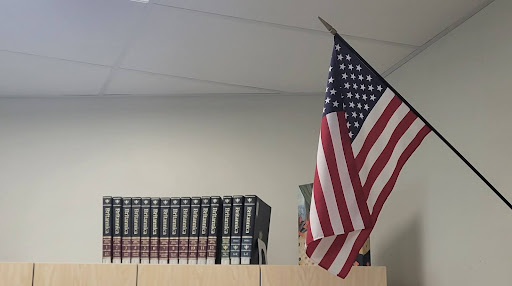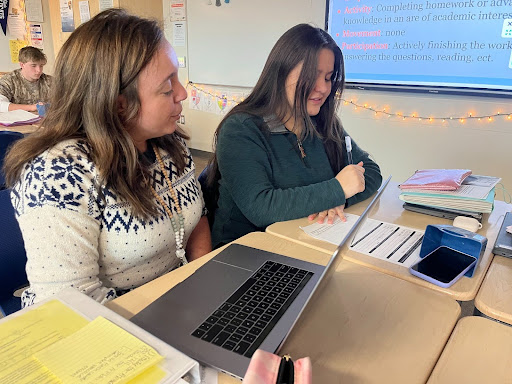
Panorama Surveys were administered this September, and are intended to be used in forming interventions to help students wherever the data deems necessary. The surveys, officially called Panorama Student Success by founding company Panorama Education, were implemented in August 2022 as part of the program’s pilot for Granite District. Moving forward, Panorama is set to be conducted tri-annually, with data being observed by Skyline’s student support team.
The team consists of the counselors, school psychologist, social worker, and administrators. After the window for Panorama closes, this group meets to talk about what they can do with the data they’ve gathered. Benjamin Anderson, the assistant principal leading the efforts with the program this year, said, “It’s important to us to get feedback from students to find out how we can make Skyline a better place to help them have a better experience to then, in turn, improve their education.”
This feedback is used by the team to indicate areas where the school, as a whole, can improve. Victoria Hatton, the school psychologist, explains, “When you see patterns in the way that you’re measuring something, that gives you information that you can use to change things.” Panorama, Hatton says, is a way of measuring how students feel about their proficiency in individual skills. When weaker skills are identified, interventions can be made.
The first intervention occurred before September 29, the closing date for the three week survey window. Technically speaking, the Resiliency and Suicide Prevention presentation shouldn’t be considered an intervention, as it isn’t intervening so much as teaching, but it does use Panorama data to encourage change. “Every single year that presentation will look a little bit different, but we want to cover suicide prevention,” said Bronson Gray, one of the counselors giving the presentations. “The other part of that presentation we talked about problem solving and one of the problems, or needs, that we saw in the school was loneliness.” This fine-tuned focus on loneliness was made possible by the Panoramas, Gray says.
Another topic the surveys touched on were emotions. Anderson explains, “Essentially, we want to know what [students] feel, and if they can also pay attention to what they feel, they also can make adjustments as necessary to improve their own lives.” Self-reflection is a key factor in the problem solving that the counselor’s presentation emphasized. “We have a lot of students at Skyline that feel sad… that feel anxious,” said Gray. “No one can escape those feelings, but hopefully we can find ways to get through them, which is where resiliency came in.” Being resilient through tough times, and practicing self-awareness can help students understand if they are experiencing regular emotions or poor mental health.
This difference should be considered when regarding the surveys as well. “Panorama is not looking at any kind of measure of mental illness,” Hatton said. While emotions are a part of Panorama, they are not the main focus. The student support team encourages students to reach out to resources such as SafeUT if they are experiencing poor mental health.
Other interventions are to be expected in the coming school year, like those done in regards to attendance and teacher-student relationships previously. However, interventions like this can only be helpful to those who are willing to change. Hatton states, “We’re just trying to give people the resources that they need to grow if they want to grow.”



